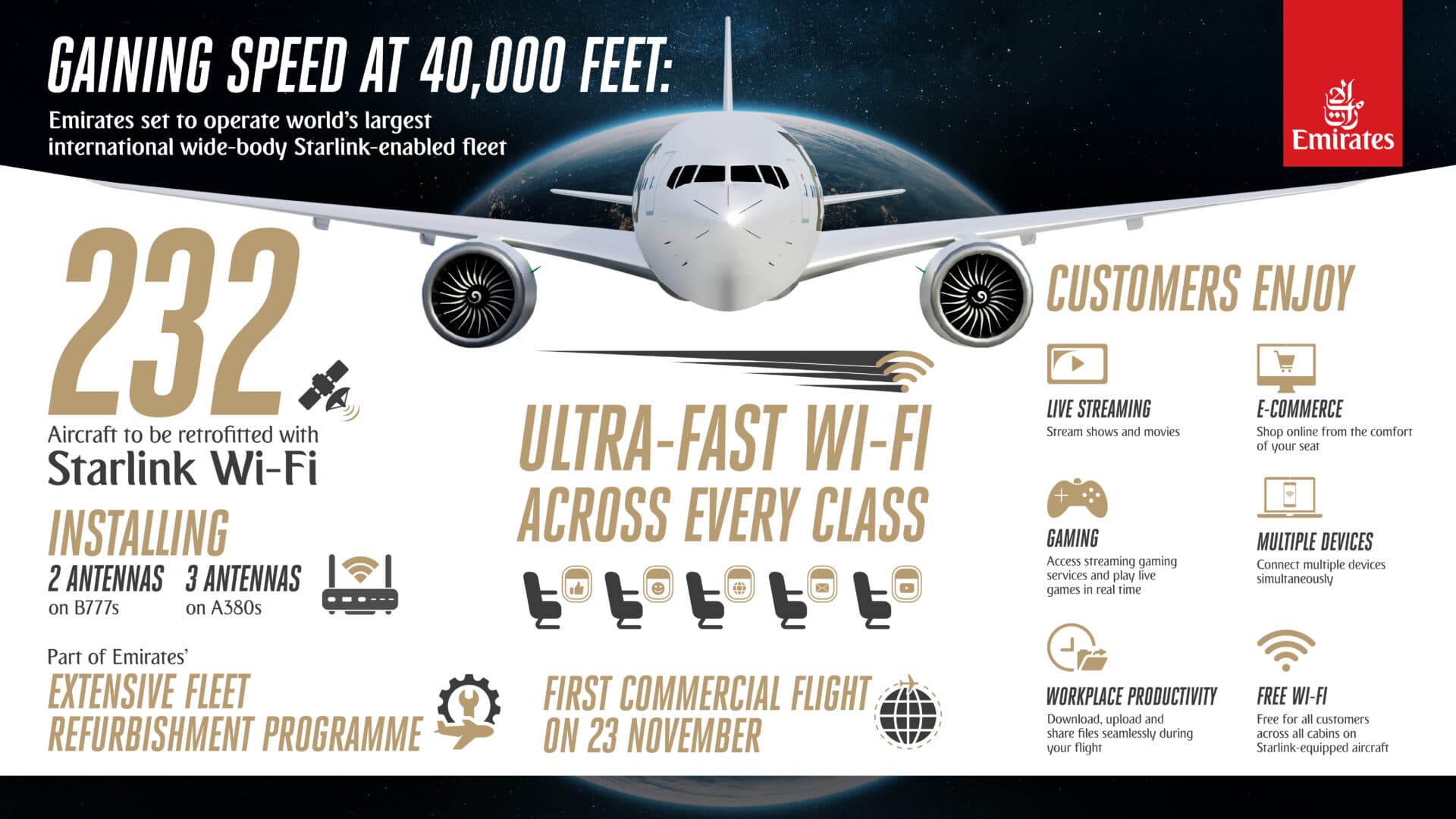Emirates to Offer Free Starlink Wi-Fi on 232 Aircraft, First Flight November 23

The future of in-flight connectivity is rapidly becoming a reality, as evidenced by a recent social media post from Aubrey Strobel, who tweeted, "> I’m using Starlink on a plane right now, this is the future we were promised." This sentiment is underscored by a major announcement from Emirates, revealing its plan to deploy SpaceX's Starlink high-speed internet across its entire fleet of 232 wide-body aircraft, with the first commercial flight featuring the service set for November 23, 2025. This initiative positions Emirates to become the world's largest operator of Starlink-enabled wide-body aircraft, offering free, high-speed Wi-Fi to all passengers.
The rollout will commence with Boeing 777 aircraft this November, extending to its Airbus A380 fleet from February 2026, with full completion anticipated by mid-2027. Passengers across all cabin classes will gain access to ground-like internet speeds, enabling activities such as streaming content, online gaming, video calls, and seamless browsing on personal devices and seatback entertainment systems, without requiring payment or Skywards membership. Sir Tim Clark, President of Emirates Airline, stated, "Partnering with Starlink is another defining moment in our continuous commitment to ensuring our customers 'fly better'."
Emirates' aggressive adoption highlights a broader industry trend, with Starlink rapidly expanding its footprint in commercial aviation. As of November 2025, over a dozen major airlines, including United Airlines, British Airways, Qatar Airways, Air France, Hawaiian Airlines, and SAS Scandinavian Airlines, are either using or have contracted to install Starlink on their fleets. Qatar Airways, for instance, has already installed Starlink on over 100 wide-body aircraft, operating more than 30,000 Starlink-equipped flights since October 2024.
Starlink's advanced satellite technology, featuring machine learning algorithms for dynamic beamforming and orbital management, ensures low-latency, high-speed internet at cruising altitudes. This has propelled SpaceX to a leading position, commanding over 60 percent market share in aviation satellite internet by 2025, according to industry analyst Sawyer Merritt. The widespread integration of Starlink is transforming the passenger experience, moving beyond traditional, often unreliable, in-flight Wi-Fi solutions.
This significant shift towards enhanced connectivity is expected to continue, with Valour Consultancy predicting that Starlink internet service will be active on over 10,000 aircraft by the end of 2034. The move by Emirates, offering this premium service for free, sets a new benchmark for passenger expectations and reinforces the airline's leadership in global aviation, aligning with the "future we were promised" for air travel.